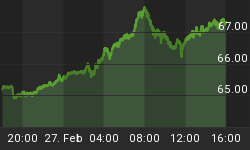As the dire news continues to leach out of Fukishima, the silver lining in its nuclear cloud is that renewable energy technologies, despite their daunting start-up costs, are receiving renewed scrutiny.
Make no mistake - given the trillions of dollars invested over the last five decades in nuclear energy, the industry and its lobbyists will not go down without a fight, promoting new, "safe" reactor designs, etc. etc. etc.
But the Fukushima debacle has finally bared the industry's darkest secret, it inability to manage its nuclear waste. The six reactor TEPCO Daichi Fukushima stored all its waste onsite, and the spent fuel rods and their lack of cooling have been a major contributor to the high radiation levels observed around the facility. Worse for nuclear power proponents has been the reluctant admission by TECPO that three of the complex's six reactors apparently did in fact suffer a meltdown.
So, what's next?
Hydroelectric facilities are a proven technology, but expensive and take years to construct.
Wind power also has substantial start-up costs, is erratic, and faces environmental opposition.
With the notable exception of bioethanol, little real money has gone into biofuel renewable, particularly in the U.S., where bioethanol produced from corn has a hammerlock on both subsidies and crop insurance, despite rising concerns about shifting land from food to energy production is driving up costs of foodstuffs. The leading contenders for bio-renewables, camelina, algae and jatropha, all are starved for investment as a result.
Which leaves solar energy, whose major dra wback up to now has been its high cost to generate kilowatts.
That however is changing, as research finds ways to lower costs.
DuPont's colorless polyimide film, a revolutionary new material currently in development for use as a flexible superstrate for cadmium telluride (CdTe) thin film photovoltaic modules, has established a new world record for solar cell conversion efficiency reaching 13.8 percent using the new Kapton colorless film, leapfrogging their previous world record of 12.6 percent and nearing that of glass. Robert G. Schmidt, new business development manager, Photovoltaics - DuPont Circuit & Packaging Materials commented, "Rather than transporting heavy, fragile glass modules on large trucks and lifting them by crane onto rooftop PV installations, one could imagine lightweight, flexible film-based modules that could simply be rolled up for transport, and easily carried up stairs."
On the other side of the world, according to Huang Xinming, head of a research institute at JA Solar, a large Chinese solar power company, JA Solar has just developed a new technology that could cut the cost of producing silicon, an important material in manufacturing solar panels, by 60 percent.
Cutting raw material costs, raising efficiency and reducing weight and transportation costs - t'would seem the future is lighting up, no pun intended.
And once again, China is apparently out-thinking its Wall Street competition, obsessed with maximizing profits and quarterly balance sheets. In any industrial process, increased production lowers in turn production costs. Rather than wait for entrepreneurs to line up in Beijing, china is apparently moving to make solar energy a component of its foreign policy in Africa as it moves to secure access to the Dark Continent's mineral riches.
According to Sun Guangbin, the secretary-general of photovoltaic products at the China Chamber of Commerce for Import & Export of Machinery and Electronic Products, speaking in a recent interview, China intends to build solar power projects in 40 African nations in a boot-strap effort that will both reduce the continent's reliance on fossil fuels and open a new market for Chinese manufacturers, the biggest producers of solar panels. Sun noted, "China needs new emerging markets to consume their solar products besides Europe, and Africa could be one of them. We'll begin investigating this month in Africa to determine a suitable project in each country, such as installing solar panels on the rooftops of schools and hospitals."
Compare this with today's pronouncement from London that the Conservative government of David Cameron intends "Drastic cuts for large-scale solar power subsidies," according to a headline in the Guardian.
London and Washington are both still wedded to Big Oil and nuclear power. But if the 21st century is going to be about the struggle by Western economies to have access to Third World raw materials, it would seem that Africans, their schools, hospitals and home lighted by solar panels, may well look eastwards.
By. Dr. John C.K. Daly for OilPrice.com. For more information on oil prices and other commodity related topics please visit www.oilprice.com















